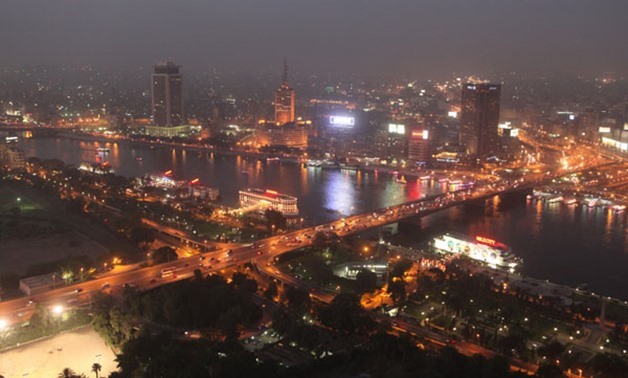
Cairo at night - Reuters/Asmaa Waguih
CAIRO – 14 February 2018: Over the next few weeks Egyptian President Abdel Fatah al-Sisi will face a single opponent in the presidential election campaign heats up. The Egyptian presidential election – set to begin locally on March 26 – is predicted to be an easy win for the current president, Sisi, at the expense of his opponent Moussa Mostafa Moussa.
It may be certain that the Egyptian president will secure a second term in power, but he is expected to have to face several tough obstacles over the next four years. Economic woes along with the global phenomenon of terrorism are pressing issues in need of governmental handling.
Terrorism
Egypt has been targeted by a series of terrorist attacks since the ousting of former President Mohamed Morsi; the terrorism insurgency has mainly been active in the Sinai Peninsula, where hundreds of Egyptian security individuals have become victims of extremist militias.
The Sinai insurgency initially consisted of separate militants who exploited the chaotic situation in Egypt following the January 25 Revolution and launched a series of attacks on government forces in Sinai. Since 2014, terrorist attacks started to take the shape of regular and organized operations. The most dangerous terrorist group, Ansar Bayt Al-Maqdis (ABM), pledged allegiance to the Islamic State (IS), which is indicative of its increasingly violent ideology .
The Egyptian authorities have attempted to restore security in Sinai through both political and military measures. Egypt launched several military operations, including: Operation Eagle in mid-2011, Operation Sinai in mid-2012 and Operation Martyr's Right from 2015 till present. The ongoing Operation Sinai 2018 was considered to be the largest military action in the Sinai Peninsula for many years. The operation targets sites in Rafah, Arish and Sheikh Zuweid, in addition to all towns in the northern area of the peninsula.
The army announced in mid-2017 that the Martyr's Right military operation resulted in the death of about 500 militants and destroyed hundreds of hideouts and vehicles used by terrorists since it began in September 2015. The first stage of the army’s strategy to face terrorism depended on monitoring terrorism's regional and international networks that provide logistical and financial support to terrorists in the country.
The Egyptian president ordered in February the initiation of Operation Sinai 2018 to contain the terrorism threat in Central Sinai, the Nile Delta and the Western Desert along the porous border with Libya. The operation intends to show the high efficiency of the Egyptian military and police in combating terrorism, without causing any danger to residents.
Booming birth rates
Another obstacle facing the president is the uncontrolled boom in birth rates in Egypt. The constant dilemma has remained unsolved during the era of former President Hosni Mubarak, and has witnessed an escalation since the January 25 Revolution. According to the Central Agency for Public Mobilization and Statistics (CAPMAS), the Egyptian population has increased by 11 million during the past seven years; the huge figure is equal to the population of Greece.
A challenge of this population rise will be increasing unemployment as more job seekers enter the market. Other issues, such as water scarcity in some Egyptian towns, will become more prominent.
Sisi’s government was caught up in the process of recovering the deteriorated economy; one of the government’s attempts to contain the growing population has been building the New Administrative Capital outside the delta.
The New Administrative Capital will be divided into 20 districts that could house up to six million people. It is also planned to include educational institutions, hospitals, 40,000 hotel rooms, a theme park, solar plants and a new international airport.

Comments
Leave a Comment